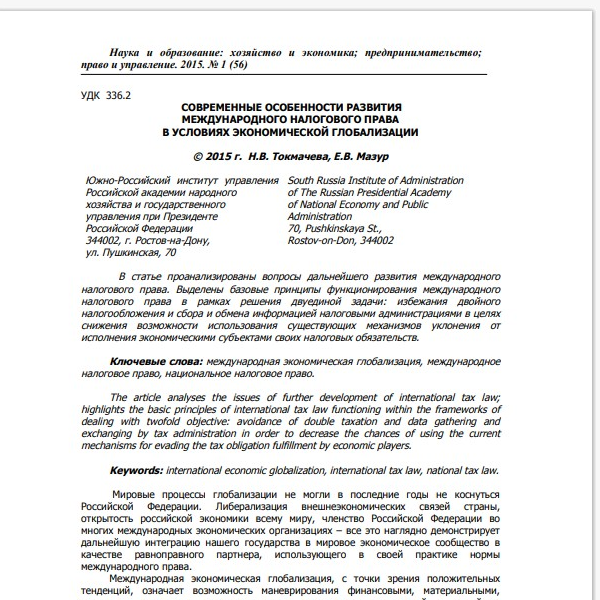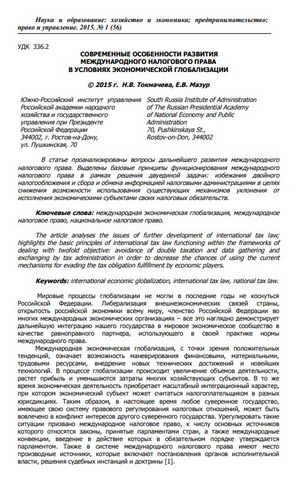Описание
Введение
Цель исследования статьи заключается в анализе международного космического права (МКП), особенно в свете Договора о принципах, регулирующих деятельность государств в исследованиях и использовании космического пространства, подписанного в 1967 году. Авторы обращают внимание на роль Российская Федерация/СССР и США в создании данных норм, что находит отражение в историческом контексте Холодной войны. Актуальность исследования определяется необходимостью адаптации МКП к современным технологическим и экономическим вызовам, связанным с космической деятельностью.
Методология
В исследовании применены разнообразные методы, включая исторический обзор, формальную логику (анализ и синтез), а также сравнительно-правовые и интерпретационные подходы. Исходными материалами послужили работы ведущих специалистов в области МКП, проекты международных договоров, резолюции ООН и другие правовые документы, касающиеся регулирования космической деятельности.
Основные результаты
Главные находки исследования касаются анализируемых положений Договора о космосе и актуальных правовых вопросов, таких как правовой статус природных ресурсов Луны, использование космического пространства в мирных целях, правовой статус космических туристов, а также регулирование коммерческой космической деятельности. Авторы подтверждают значимость Договора как основы для дальнейшей эволюции МКП.
Обсуждение и интерпретация
Авторы интерпретируют свои findings с акцентом на необходимость дальнейшей прогрессивной разработки международного космического права посредством аутентичного толкования положений Договора, добавления протоколов и создания универсального законодательства. Также подчеркивается взаимосвязь между различными источниками международного права и национальным законодательством при поиске правовых решений.
Заключение
Основные выводы исследования указывают на необходимость признания роли Договора как принципа для развития МКП. Практическая значимость работы заключается в создании правовой основы для упорядоченного развития коммерческой космической деятельности. Ограничения исследования связаны с недостатком конкретных правовых норм и механизмов международного регулирования природных ресурсов. Рекомендуется дальнейшее исследование в области унификации норм и стандартов, касающихся космической деятельности.
Ключевые слова и термины
Основные термины, использованные в статье, включают международное космическое право, Договор о космосе, природные ресурсы Луны, космические туристы, правовая регламентация коммерческой космической деятельности.
Библиография
Ключевые источники, на которые ссылается статья, включают работы ведущих специалистов в области космического права, документы ООН и материалы международных конференций. Библиография поможет читателю глубже ознакомиться с темой космического права и его развития в современном мире.


Отзывы
Отзывов пока нет.